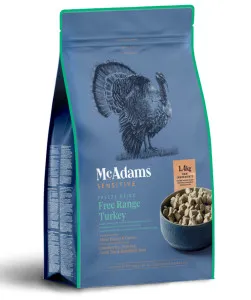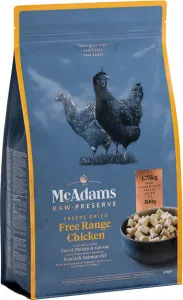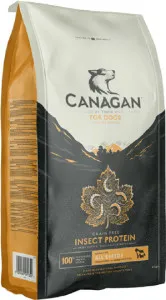Feeding Guidelines for Labrador Retrievers: A Complete Guide
Labrador Retrievers are one of the most popular dog breeds worldwide, known for their friendly nature, intelligence, and boundless energy. However, their love for food and tendency to overeat can lead to obesity and other health issues if not managed properly. To keep your Labrador healthy and happy, it’s essential to follow proper feeding guidelines tailored to their unique needs. In this guide, we’ll cover everything you need to know about feeding your Labrador Retriever, from portion sizes to choosing the right food.
Understanding Your Labrador’s Nutritional Needs
Labradors are active dogs that require a balanced diet to support their energy levels, muscle development, and overall health. Their diet should include high-quality protein, healthy fats, carbohydrates, vitamins, and minerals. Here’s a breakdown of the key nutrients your Labrador needs:
- Protein: Essential for muscle growth and repair. Look for dog food with at least 18-22% protein content.
- Fats: Provide energy and support skin and coat health. Aim for 10-15% fat content in their diet.
- Carbohydrates: Offer a steady source of energy. Whole grains, vegetables, and fruits are excellent sources.
- Vitamins and Minerals: Support immune function, bone health, and overall well-being.
- Puppies (8 weeks to 6 months): Feed 3-4 small meals per day, totaling 1.5 to 2.5 cups of high-quality puppy food.
- Adolescents (6 months to 1 year): Transition to 2-3 meals per day, with a total of 2 to 3.5 cups of food.
- Adults (1 year and older): Feed 2 meals per day, with a total of 2.5 to 3.5 cups of adult dog food.
- Senior Dogs (7 years and older): Adjust portions based on activity level, typically 2 to 3 cups of senior-specific food.
- Life Stage: Puppies, adults, and seniors have different nutritional needs. Choose food specifically formulated for your dog’s life stage.
- Ingredients: Look for high-quality, natural ingredients. Avoid foods with fillers, artificial additives, or by-products.
- Brand Reputation: Opt for reputable brands with a history of producing safe, nutritious dog food.
- Special Needs: If your Labrador has allergies, sensitivities, or health conditions, consider specialized diets.
- Overfeeding: Labradors are prone to obesity, which can lead to joint problems, diabetes, and other health issues. Stick to recommended portion sizes.
- Feeding Table Scraps: Human food can be high in fat, salt, and sugar, which are harmful to dogs. Avoid giving your Labrador table scraps.
- Inconsistent Feeding Schedule: Labradors thrive on routine. Feed them at the same times each day to prevent overeating.
- Ignoring Weight Changes: Regularly monitor your dog’s weight and adjust their diet as needed.
- Regular Exercise: Labradors are active dogs that need plenty of exercise. Aim for at least 30-60 minutes of physical activity daily.
- Portion Control: Use a measuring cup to ensure you’re feeding the correct amount.
- Healthy Treats: Choose low-calorie, nutritious treats and limit them to 10% of your dog’s daily caloric intake.
- Regular Vet Checkups: Schedule annual checkups to monitor your dog’s weight and overall health.
- Days 1-2: Mix 25% new food with 75% old food.
- Days 3-4: Mix 50% new food with 50% old food.
- Days 5-6: Mix 75% new food with 25% old food.
- Day 7: Transition to 100% new food.
- Food Motivation: Labradors are highly food-motivated, which can make training easier but also increases the risk of overeating.
- Joint Health: Labradors are prone to hip and elbow dysplasia. Consider foods with added glucosamine and chondroitin to support joint health.
- Allergies: Some Labradors may develop food allergies. Common allergens include beef, chicken, and wheat. If you notice symptoms like itching or digestive issues, consult your vet.
Choosing the right food is crucial. Consider using a Pet Food Analyzer to evaluate the nutritional content of different dog food brands and ensure your Labrador is getting the best possible diet.
How Much Should You Feed Your Labrador Retriever?
The amount of food your Labrador needs depends on their age, weight, activity level, and metabolism. Here’s a general guideline to help you determine the right portion size:
Remember, these are general recommendations. Always monitor your dog’s weight and adjust portions as needed. If you’re unsure, consult your veterinarian for personalized advice.
Choosing the Right Food for Your Labrador
Not all dog foods are created equal. When selecting food for your Labrador, consider the following factors:
Using a Pet Food Analyzer can help you compare different brands and make an informed decision based on your Labrador’s specific needs.
Recommended Products

McAdams Freeze Dried Free Range Turkey is an excellent choice for feeding guidelines for labrador retrievers. This dog food contains Boneless Free Range Turkey 86.5% and other high-quality ingredients that promote overall health.

McAdams Freeze Dried Free Range Chicken is an excellent choice for feeding guidelines for labrador retrievers. This dog food contains Boneless Free Range Chicken 86% and other high-quality ingredients that promote overall health.

Canagan Insect is an excellent choice for feeding guidelines for labrador retrievers. This dog food contains Freshly Prepared Insects (27%)* and other high-quality ingredients that promote overall health.
Common Feeding Mistakes to Avoid
Labradors are notorious for their love of food, which can lead to overfeeding and unhealthy habits. Here are some common mistakes to avoid:
Tips for Maintaining a Healthy Weight
Maintaining a healthy weight is crucial for your Labrador’s overall health. Here are some tips to help keep your dog in shape:
Transitioning to a New Food
If you decide to switch your Labrador’s food, do so gradually to avoid digestive upset. Follow these steps for a smooth transition:
If your dog experiences any digestive issues, slow down the transition process or consult your veterinarian.
Special Considerations for Labradors
Labradors have unique traits that require special attention when it comes to feeding:
Final Thoughts
Feeding your Labrador Retriever the right diet is essential for their health and well-being. By understanding their nutritional needs, choosing high-quality food, and avoiding common feeding mistakes, you can ensure your Labrador stays happy and healthy for years to come. For more tips on selecting the best food for your dog, check out our Pet Food Analyzer .
Remember, every dog is unique, so it’s important to tailor their diet to their specific needs. If you have any concerns about your Labrador’s diet or weight, don’t hesitate to consult your veterinarian. With the right care and attention, your Labrador can enjoy a long, healthy, and active life.
